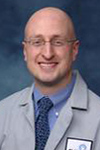Members
Meet the Burridge lab team members. We welcome requests for information about our work and collaboration opportunities.
Principal Investigator

Paul Burridge, PhD
Associate Professor, Department of Pharmacology and Center for Pharmacogenomics
Dr. Burridge is a tenured associate professor in the Department of Pharmacology at Northwestern University Feinberg School of Medicine and a founding faculty member of the Center for Pharmacogenomics. Dr. Burridge began his career in genomics and bioinformatics at the Sanger Institute working on the human and mouse genome projects. He completed a PhD in Human Stem Cell Biology at the University of Nottingham before pursuing postdoctoral fellowships at Johns Hopkins University in Pediatric Oncology and then at Stanford University in Cardiology before becoming an Instructor in Cardiovascular Medicine at Stanford. For nearly two decades, Dr. Burridge has worked on the applications of human pluripotent stem cells, concentrating on culture and differentiation methodologies, regenerative medicine, and disease modeling, specifically the pharmacogenomic and molecular mechanisms of chemotherapy-induced cardiomyopathy and heart failure. Dr. Burridge is the recipient of the NIH NHLBI Pathway to Independence Award and is a Fellow of the American Heart Association in Genomic and Precision Medicine.
Postdoctoral Fellows

Ning Ge, PhD
Postdoctoral Fellow
Ning earned his PhD in Regenerative Medicine from University of Galway, Ireland in 2022 under the supervision of Dr. Terence W. Prendiville (CHI Crumlin). During his doctoral training, he recapitulated genetic cardiac arrhythmia - long QT syndrome using hiPSC and CRISPR/Cas9 technology. He joined the Burridge lab in March 2023 and is interested in developing atrial cardiomyocyte differentiation from hiPSCs and modeling atrial fibrillation disease.
George Gibbons
Postdoctoral Fellow
PhD - University of Cambridge, UK

Praeploy Pongpamorn, PhD
Postdoctoral Fellow
Praeploy earned her PhD in Regenerative Sciences from Hannover Medical School, Germany, in 2022 under the supervision of Dr. Ruth Olmer. During her doctoral training, she studied the contributions of vascular cell types to the onset of the rare genetic disease Loeys-Dietz Syndrome using patient-derived iPSCs. She joined the Burridge lab in October 2022 and is interested in chemically defined hiPSC differentiation to various lineages.

Nnamdi Uche, PhD
Postdoctoral Fellow
Nnamdi earned his PhD in Physiology from the Medical College of Wisconsin. During his doctoral training, he studied the functional consequences of and preventative efforts against chemotherapy-induced mitochondrial dysfunction using human induced pluripotent stem cell-derived cardiomyocytes. He joined the Burridge lab in June 2023 and has an interest in elucidating the factors and mechanisms involved in the differential susceptibility of different population groups to doxorubicin-induced cardiotoxicity.
Graduate Students
Research Staff
Suzy Doody
Research Technologist

Conrad Epting, MD
Attending Physician, Critical Care and Cardiology, Associate Professor of Pediatrics and Pathology
Strategies to promote cell and tissue regeneration remain at the forefront of cardiovascular biology. I have a scientific background in myogenic stem cells and skeletal muscle regeneration. At Northwestern University, I spent some years studying myocardial targeting by pathogens, specifically T. cruzi, the leading cause of myocarditis and heart failure in endemic regions of Latin American. However, as a practicing cardiac intensivist, my research program has shifted to the study of pediatric heart failure. I am interested in the response of resident progenitor cells to aging and heart failure. We suspect an epigenetic basis for cardiac progenitor cell activation in patients with premature ventricular failure secondary to exposure from neurohormonal axis activation. In partnership with the pediatric cardiovascular surgeons we created a cardiac biorepository to further translational research across the institution. Through collaboration with the Burridge laboratory I hope to determine the differentiation potential of resident cardiac cell populations and optimize direct reprograming of primary cardiac fibroblasts. We hope that knowledge of the phenotype of resident cells and their reprograming potential will enable clinical cryobanking, ex vivo reprogramming, and in situ cell manipulation to extend the lives of children and young adults with progressive heart failure from cardiomyopathy and congenital heart disease. We have implementing the Fontan Futures Initiative to optimize atrial tissue cryopreservation and enable clinical grade biobanking on behalf of patients with single ventricle physiology who are likely to progress to end-stage heart failure through a generous endowment from the Mathews Center for Cellular Therapy at Northwestern Medicine.

Hananeh Fonoudi, PhD
Research Assistant Professor
Hananeh earned her PhD in Stem Cells and Developmental Biology from the St. Vincent’s Clinical School of Medicine at the University of New South Wales, Sydney, Australia. During her PhD work she studied the genetics of hypoplastic left heart syndrome (HLHS) using human induced pluripotent stem cells under supervision of Dr. Richard Harvey at the Victor Chang Cardiac Research Institute. She joined Burridge lab at Northwestern University in February 2019 and works on human cardiac organoids and modeling pediatric congenital heart disease. Hananeh is funded by an Additional Ventures Career Development Grant.